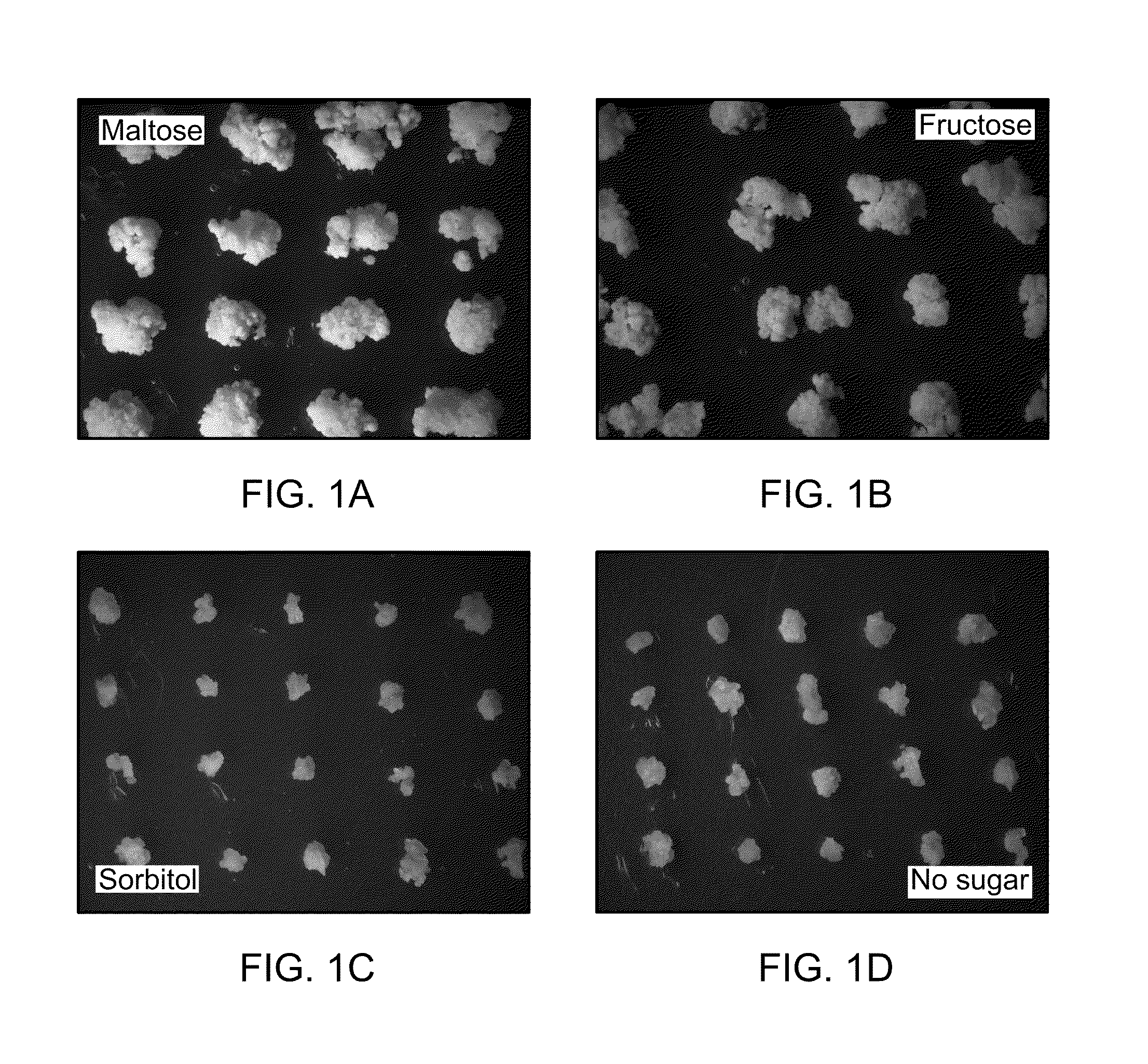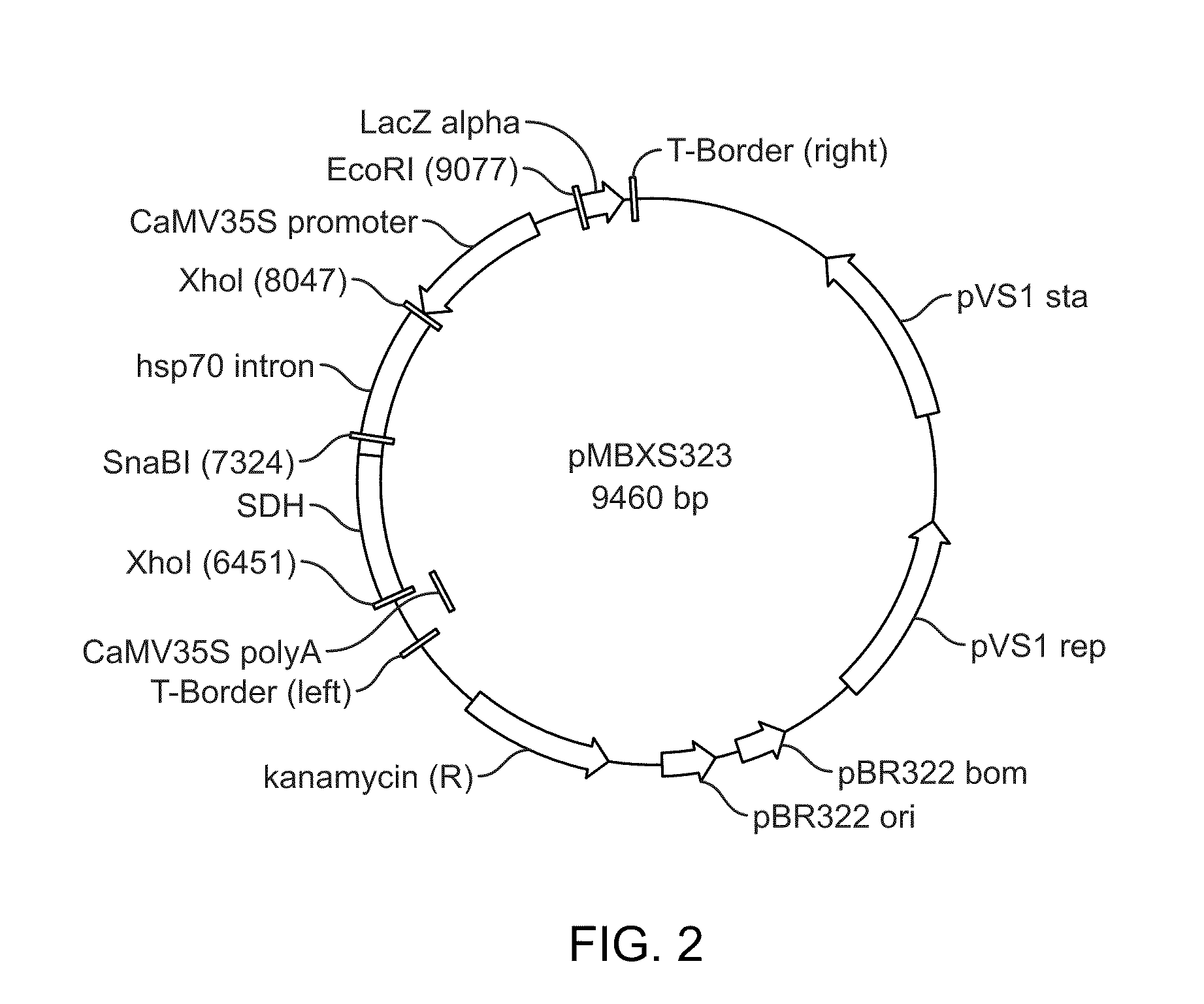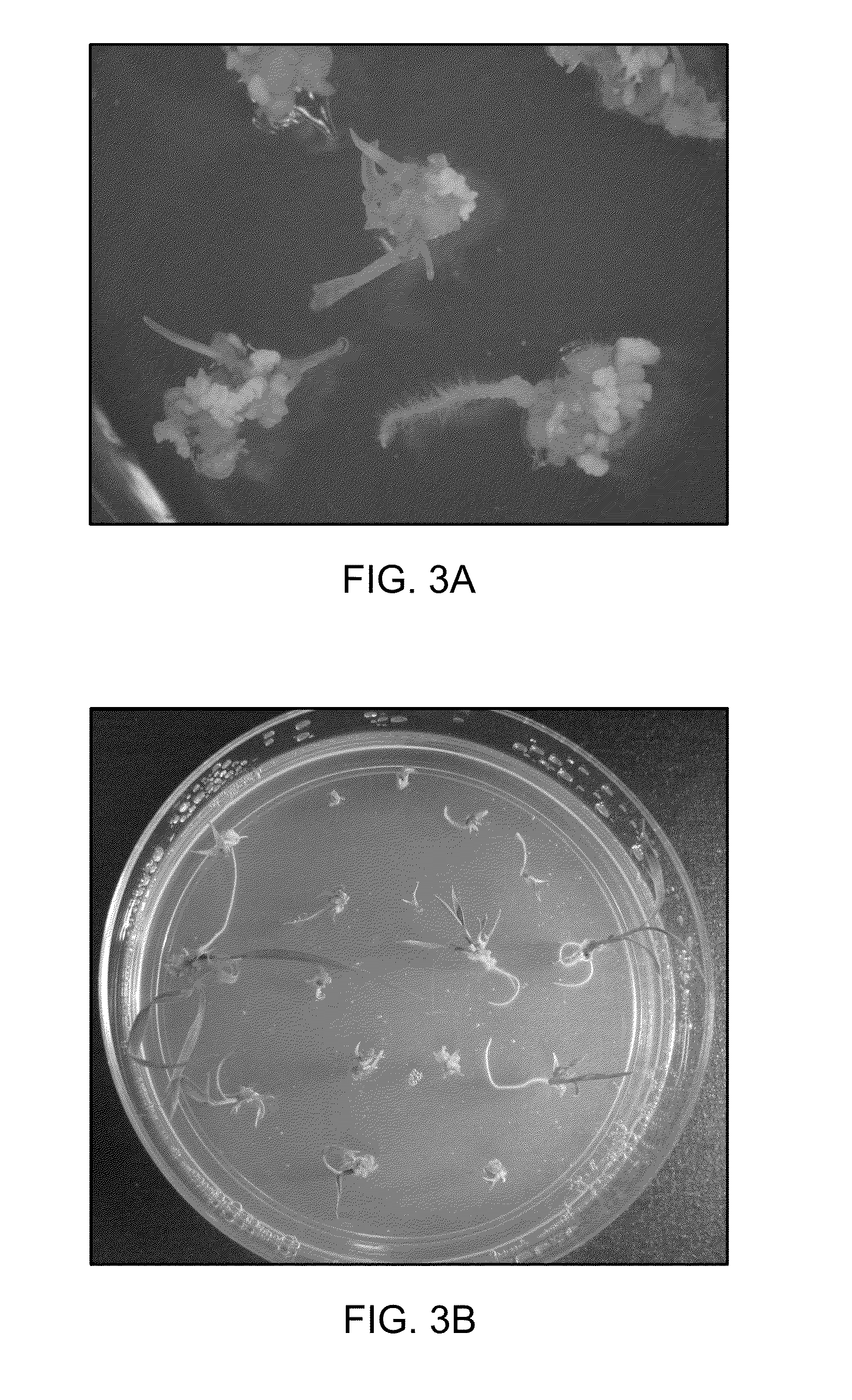Method of positive plant selection using sorbitol dehydrogenase
a plant and sorbitol technology, applied in the field of plant molecular biology, can solve the problems of inability to use these carbon sources as the sole source of carbon for plants, inability to provide information or guidance regarding which plants can use them, etc., to achieve the effect of increasing yield, reducing plant metabolic rate, and increasing root growth
- Summary
- Abstract
- Description
- Claims
- Application Information
AI Technical Summary
Benefits of technology
Problems solved by technology
Method used
Image
Examples
example 1
Growth of Switchgrass Callus Cultures in the Presence of Different Carbon Sources
[0093]The in vitro response of various plants grown on medium supplemented with different sugar sources was investigated. For these purposes, switchgrass (Panicum virgatum L. cv. ‘Alamo’) was chosen as a representative monocot species. Highly embryogenic callus cultures of switchgrass were initiated from mature caryopses according to established procedures (Denchev, P. D. and B. V. Conger, Crop Sci., 34: 1623-1627 (1994)) and transferred to callus multiplication media [media consists of MS basal salts (product#MS002, Caisson Laboratories, North Logan, Utah, USA), 6-benzylaminopurine (BAP, 4.4 mM), 2,4-dichlorophenoxyacetic acid (2,4-D, 22.6 mM), and agar (8 g / L agar), pH 5.6]. The media was supplemented with carbon sources as indicated in the following concentrations: maltose (83.3 mM), fructose (111 mM), sorbitol (41.2 mM), or no carbon source. After 4 weeks of dark incubation at 28° C., the callus mul...
example 2
Evaluation of Calli Growth with In Vitro Cultures of Arabidopsis thaliana in the Presence of Different Carbon Sources
[0094]Growth of cultures of Arabidopsis thaliana, a model dicot species, were also examined to determine if they were able to grow in the presence of sorbitol as a sole carbon source. Leaf and root explants were excised from sterile seedlings of Arabidopsis and were plated on medium containing maltose, fructose, or sorbitol, or no carbon supplement as described in Example 1. After 4 weeks of dark incubation at 25° C., both root and leaf cultures showed considerable callus growth in the presence of maltose and fructose. As with switchgrass callus cultures, little to no growth of Arabidopsis cultures derived from leaves or roots was observed on medium containing sorbitol or on medium without a carbon source.
example 3
Construction of Plasmid for Expression of Sorbitol Dehydrogenase
[0095]To determine whether expression of sdh, a gene encoding sorbitol dehydrogenase that catalyzes the conversion of sorbitol to fructose, could enable cultures of switchgrass to grow in the presence of sorbitol, a plant transformation construct for Agrobacterium-mediated transformation of switchgrass was designed and constructed. Genes encoding sorbitol dehydrogenase have been cloned from many organisms including Bacillus subtilis (Ng, K., et al., J. Biol. Chem., 267(35): 24989-24994 (1992); Gluconobacter suboxydans (U.S. Pat. No. 6,127,156 to Hoshino, et al.), Homo sapiens (Lee, F. K., et al. Genomics, 21(2): 354-358 (1994), apple fruit (Yamada, K., et al., Plant Cell Physiol. 39(12): 1375-1379 (1998), Saccharomyces cerevisiae (Sarthy, A., et al., Gene, 140(1): 121-126 (1994), and Pseudomonas sp. KS-E1806 (EP1262551 to Masuda, Ikuko, et al.). For the purposes of this study, the sorbitol dehydrogenase gene from Pseudo...
PUM
| Property | Measurement | Unit |
|---|---|---|
| length | aaaaa | aaaaa |
| insect resistance | aaaaa | aaaaa |
| antibiotic resistance | aaaaa | aaaaa |
Abstract
Description
Claims
Application Information
 Login to View More
Login to View More - R&D
- Intellectual Property
- Life Sciences
- Materials
- Tech Scout
- Unparalleled Data Quality
- Higher Quality Content
- 60% Fewer Hallucinations
Browse by: Latest US Patents, China's latest patents, Technical Efficacy Thesaurus, Application Domain, Technology Topic, Popular Technical Reports.
© 2025 PatSnap. All rights reserved.Legal|Privacy policy|Modern Slavery Act Transparency Statement|Sitemap|About US| Contact US: help@patsnap.com



